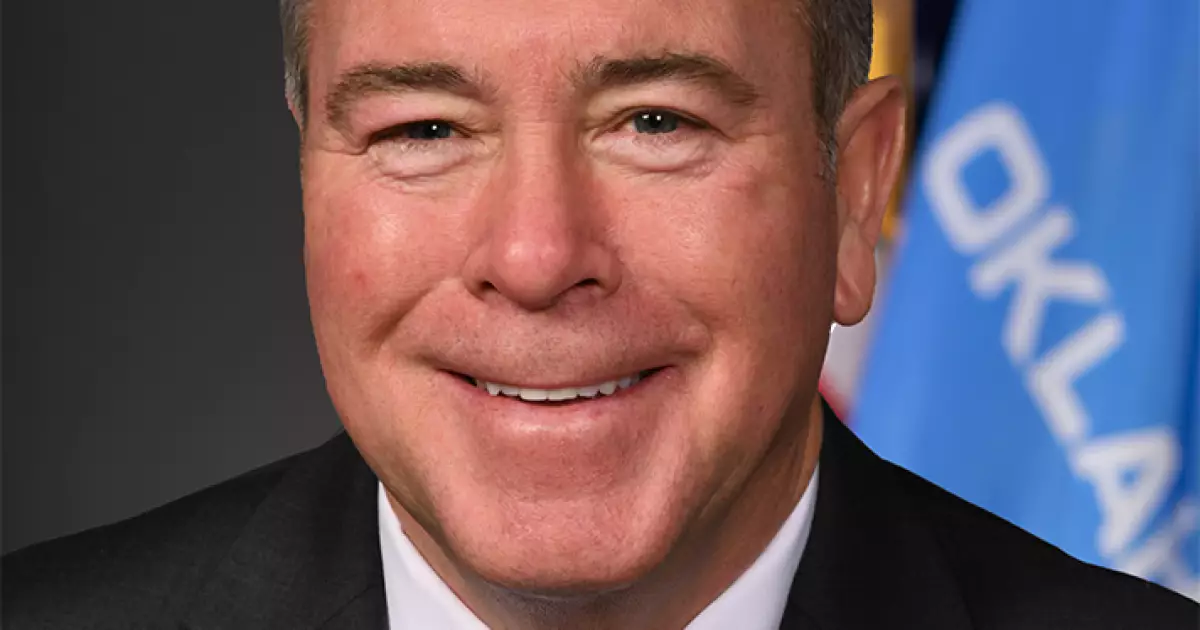The ongoing legal challenge against Oklahoma Treasurer Todd Russ and key members of his office has spotlighted the tensions surrounding environmental, social, and governance (ESG) investing practices. Filed by FOIA Professional Services, this suit underscores allegations of document withholding and possible destruction related to the state’s controversial efforts to regulate financial firms based on their investment strategies toward fossil fuels. With prominent financial institutions targeted and legal actions escalating, the implications of this case could redefine the intersection between state governance and investment ethics.
The Oklahoma Energy Discrimination Elimination Act Under Scrutiny
At the heart of this controversy lies the Oklahoma Energy Discrimination Elimination Act of 2022. This legislation sought to restrict state and local contracts worth more than $100,000 with companies deemed to be “boycotting” the fossil fuel industry. Notably, this law led to the creation of a blacklist of firms, including major players such as Barclays, JP Morgan Chase, and BlackRock, reflecting a clear stance against investments perceived as anti-fossil fuel. However, in a major legal development, a district court judge blocked the enforcement of the law, citing violations against a state’s pension recipient’s rights. This ruling poses significant setbacks for Russ and raises questions regarding the future of similar legislations in Oklahoma and beyond.
The Role of FOIA Professional Services
The lawsuit filed by FOIA Professional Services intensifies scrutiny on Russ’s office. The organization specializes in managing public document requests under the Freedom of Information Act (FOIA), aiming to ensure transparency in governmental operations. Their grievance indicates that the Treasurer’s Office has not only partially complied with their requests for information but has also possibly engaged in misconduct by failing to produce critical documents concerning financial institutions and the implications of the state’s anti-ESG legislation.
In a shocking statement within the complaint, FOIA Professional Services asserts that significant emails and discussions that could clarify the treasurer’s actions might have been either withheld or destroyed. This raises ethical questions about the accountability of public officials and the transparency required in state governance.
The lawsuit makes direct accusations against Jordan Harvey, the chief of staff and deputy treasurer. It suggests that she may have redirected critical communications from her personal email account to her official state email, potentially bypassing standard oversight protocols. Such actions could contravene open-records laws and associated governmental transparency mandates. The emails in question are believed to contain discussions about major financial firms’ ESG practices, which are crucial for comprehending the motivations behind the determinations made by the treasurer’s office regarding the agency‘s blacklist.
The implications of these allegations are staggering. If true, such behavior could set a precedent for future cases concerning the preservation of transparency in governmental correspondence. It is critical for public officials to maintain trustworthy communication channels, particularly when the implications of their decisions can affect the economic stability and investment practices across the state.
The fallout from this situation extends beyond just the treasurer’s office. Involvement from high-profile firms underscores a complicated relationship between finance and ethics, raising questions regarding the obligation of public entities to consider ESG factors in their investment strategies. As states across the nation engage in similar policy discussions, this case could become a pivotal moment in shaping how governmental bodies interact with financial institutions and how they balance economic interests with broader societal responsibilities.
As this legal battle unfolds, the emphasis on transparency in governmental actions will be more critical than ever. The ability of organizations like FOIA Professional Services to access public documents ensures a level of accountability that is vital for democracy. The outcomes of this suit may not only affect the individuals involved but may also reverberate through state policies concerning ESG and investment practices. Addressing ethical concerns within public offices is imperative, and the outcomes of these legal proceedings will likely influence future legislative initiatives surrounding environmental and social governance across the nation.

